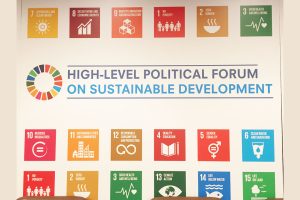The Instituto Cidades Sustentáveis (ICS) and the Sustainable Development Solutions Network (SDSN) have released the Sustainable City Development Index – Brazil (IDSC-BR) to help track the engagement of all Brazil’s 5,570 cities on the SDGs. The tool gathers data on more than 100 indicators and measures progress on sustainable development for each Brazilian city.
The IDSC-BR ranks cities and regions based on their level of accomplishment with respect to the 2030 Agenda for Sustainable Development as a whole, as well as in terms of progress on each indicator. The index also provides a visual representation of each city’s performance on the 17 SDGs in so-called ‘SDG Panels.’
According to an SDSN press release, Brazil is “the first country in the world to monitor and evaluate the level of sustainability progress of all its cities towards achieving the SDGs.”
Speaking at the launch event on 8 July 2022, Jorge Abrahão, General Coordinator of ICS, described the tool as “a strategic instrument to public administrators, since the analysis of results allows for orientation of municipal political action, as well as defining references and goals based on administration indicators, and facilitating the monitoring of the SDGs at the local level.”
The IDSC-BR reveals a gap between Brazil’s cities and regions along the social, economic, and environmental dimensions of the 2030 Agenda, showing disparities between the cities in the Southeast and North regions. The SDSN press release notes that ten cities with the best performance are found in the state of São Paulo, whereas 43 of the 100 cities with the lowest ranking are concentrated in the state of Pará. The index shows that the five worst performing capitals belong to the region of Legal Amazonia, which is composed of Brazilian states that host the Amazon biome. The city of São Caetano do Sul achieved the most SGD progress. The city of Santana do Araguaia is the worst performing city.
The IDSC-BR was presented during the July 2022 session of the High-level Political Forum on Sustainable Development (HLPF) as a solution to promote sustainable development in cities. The SDSN developed the IDSC-BR methodology and intends to expand it to other cities in Latin America.
The SDSN is an initiative under the auspices of the UN that seeks to “mobilize global technical and scientific knowledge to promote practical solutions for sustainable development” at the local, national, and global level.
ICS aims to improve people’s lives by addressing inequalities and promoting human rights, social participation, transparency, and environmental protection in alignment with the 2030 Agenda and its SDGs. [SDSN Press Release]

